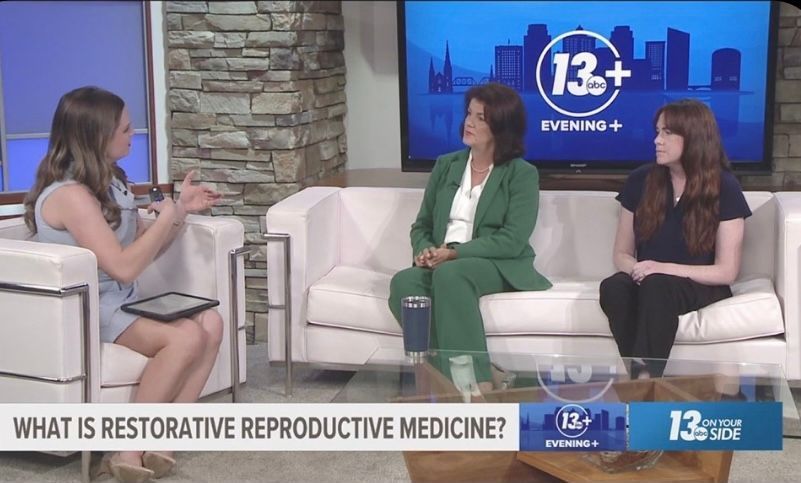1. Are there signs or symptoms of male infertility?
Unfortunately, there is no routine way to monitor male fertility similar to how we can with cycle charting for women. That being said, we can monitor for signs of low testosterone such as low libido, hair loss, fatigue, and increased body fat, especially around the midsection. Erectile dysfunction, premature ejaculation, or pain with intercourse would be other reasons to seek care as these may be related both to health and fertility concerns.
2. Are there different kinds of male factor fertility problems?
There are similar categories of male fertility issues as there are for female fertility, including hormonal abnormalities, anatomic abnormalities, genetic abnormalities and unexplained infertility.
3. What kind of tests look at male fertility?
All men who are part of a couple experiencing subfertility/infertility should complete a full health screening with a healthcare professional and have a semen analysis ordered. The semen analysis will report on sperm count, motility (movement) and morphology (shape). If any of these are abnormal, or if a physical exam or health history suggests a concern, this patient should be seen by a urologist. Ideally, this in-depth investigation should be with a urologist who has additional fellowship training in male fertility (known as a reproductive urologist). Additional testing may be considered depending on the nature of any problems. For example, not all men need hormone testing, but those who have abnormal semen parameters and signs of low testosterone will likely have blood tests ordered. Other men may need a testicular ultrasound or biopsy.
4. How do I know when to have a semen analysis ordered?
For all couples who are undergoing a fertility evaluation and having difficulty conceiving for six cycles or longer, the male partner should have a semen analysis.
We recommend considering repeating a normal semen analysis every year while undergoing fertility treatment, as results can change. For mildly abnormal semen analyses, we recommend repeating these in 3-6 months to confirm if there was a true, consistent abnormality.
5. If my semen analysis is abnormal, how often should we be having intercourse to try to conceive?
As frequently as every day during the window of peak quality cervical fluid. There is a popular myth that daily intercourse should not be recommended for men with impaired fertility. This has never been proven. In fact, in all the studies we have of intercourse, more frequent (e.g. daily) intercourse is just as likely, if not more likely, to lead to conception.
6. Does male fertility begin declining at a certain age?
Yes, we know a bit less about this, but fertility rate does appear to decline in men in their 30s and 40s, though at a slower rate than for women. Men typically remain potentially fertile their entire lifetime, unlike women, even though their actual fertility declines. At the same time, the rates of erectile dysfunction and the frequency of intercourse also decline. Finally, the risk of chromosome problems for pregnancies conceived as fathers age also rises.
7. Are there things in my lifestyle to consider for fertility health?
We would recommend avoiding heat exposure like saunas and hot tubs, and avoiding prolonged bike riding and tight-fitting pants. We would recommend avoiding any use of marijuana or tobacco. Moderate alcohol consumption is generally considered safe. Avoiding environmental toxins like hormone-disrupting chemicals also is a good idea. As far as weight goes, the worst weight for fertility is belly fat, so trying to keep your waist as trim as possible is a good thing. Heavy body building and use of body-building supplements may affect testosterone levels and sperm counts; these should be avoided if you are having difficulty conceiving.
8. Are there things that we can do together as a couple to improve our health, wellness, and fertility?
Improving communication and caring for one another can be very important. Consider taking a course together with Organic Conceptions, which helps with relationship building. Learn to identify your female partner’s most fertile times so that you can try to plan intercourse accordingly if you are trying to get pregnant. Improving dietary choices is also something couples can do together to benefit health and wellness, and that can have an impact on fertility as well. For example, men’s testes are an important producer of omega-3 fatty acids and omega-3s are essential for many bodily functions including sperm production. Research from Dr. Jorge Chavarro and his team at Harvard’s School of Public Health suggests that men who eat more good polyunsaturated fats from fish, seafood, and nuts have higher sperm counts then men who eat more trans fats from items like store-bought cookies, crackers, cakes, fast food, coffee creamers, vegetable shortening and margarine.
Here are a few quick ideas for working more omega-3s and healthy snacks into your diet.
- Need a quick lesson on cooking fish? Check out this pan-seared trout video.
- Try this healthy Lemon Garlic Salmon from The Stay at Home Chef, easy enough for weeknights!
- For more recipes (Peri Peri Shrimp, yum!) and information on fish, seafood and fertility check out this blog article.
- 20-minute DIY Spiced Nuts
2 1/2 T (total) mixed spices (can be anything you like – cinnamon, turmeric, ginger, cayenne, cumin, garlic powder, pepper, etc.)
2 T Olive Oil
2 C Mixed Nuts – walnuts, cashews, almonds, pistachios, hazelnuts, pecans, etc. (again choose what you like!)
- Preheat oven to 325 degrees F.
- Line a small baking sheet with parchment paper or a silicone mat.
- Combine all your spices in a bowl that will hold the nuts too. Add the oil. Mix until combined.
- Dump the nuts into the bowl. Stir until they are evenly coated then spread evenly on the prepared baking sheet in a single layer.
- Bake nuts for 12-15 minutes, stirring halfway through.
- Remove from oven. Stir once more then let them cool for about an hour.
- Store in an airtight container.
Reply is welcoming new patients for fertility evaluation and we offer health coaching to help with lifestyle factors. To schedule an appointment, please call us at 919.230.2100 or visit our Become a Patient page.











